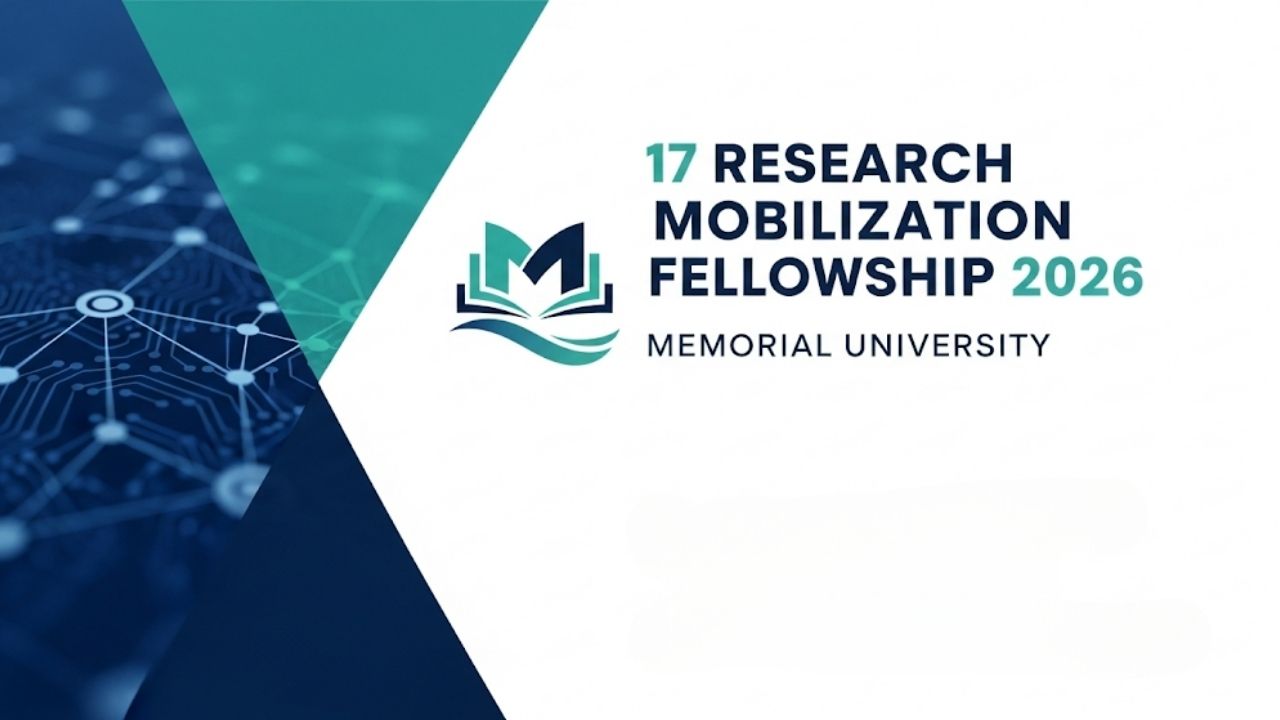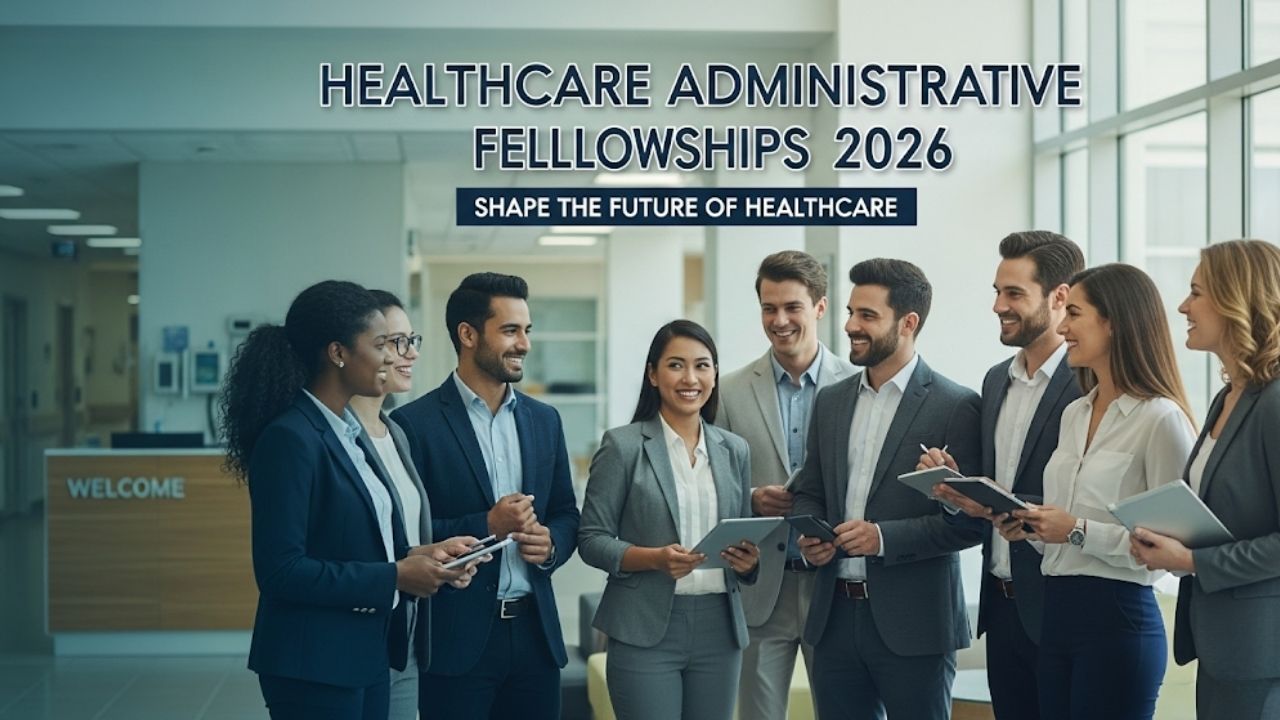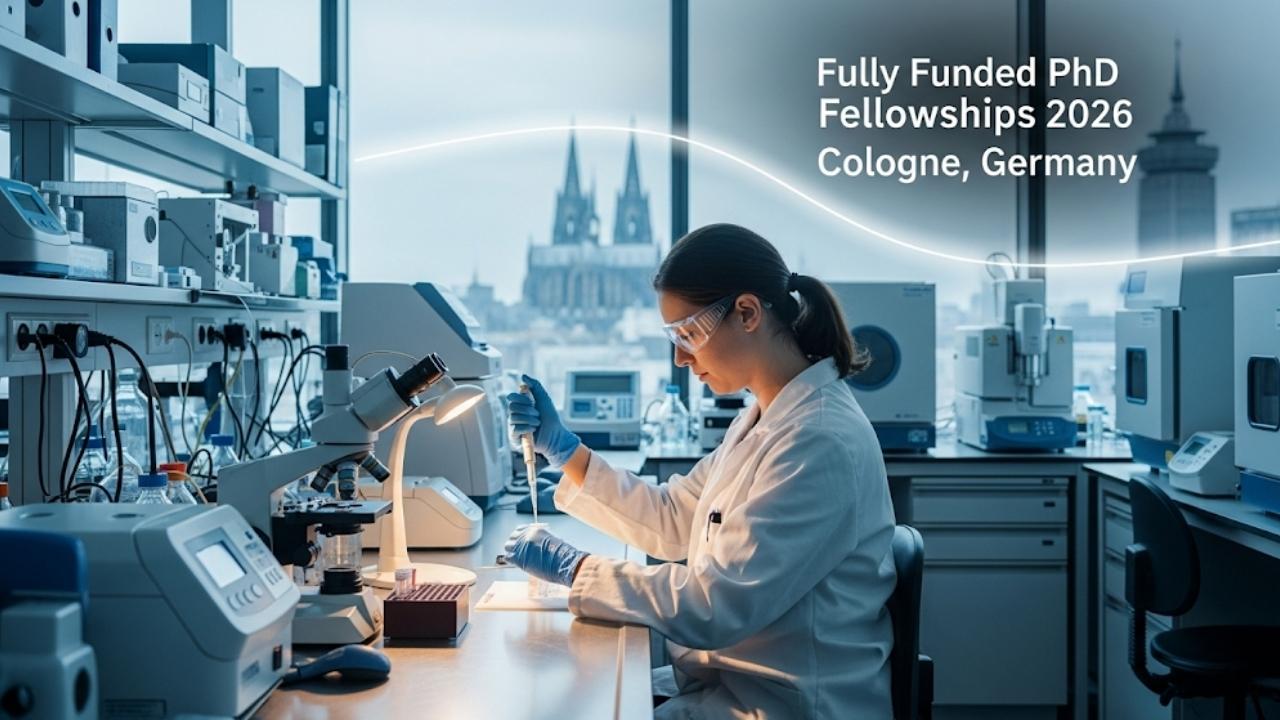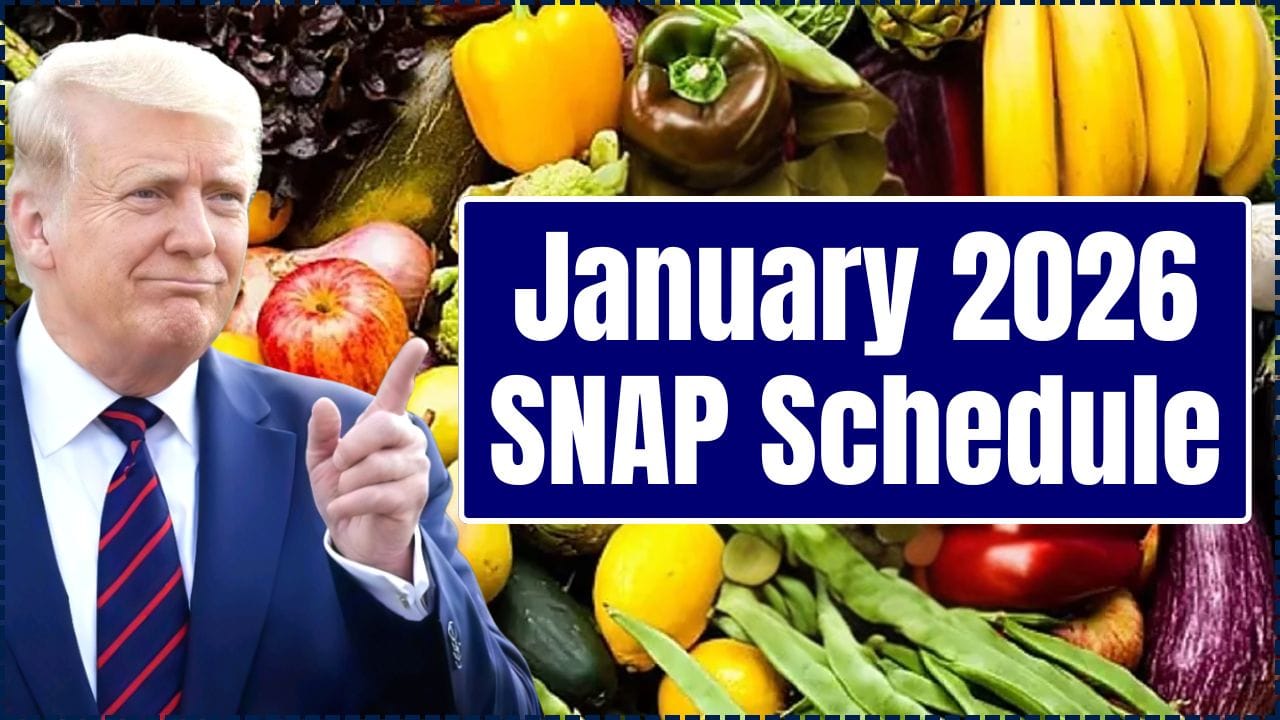Are you a passionate postdoctoral researcher dreaming of taking your career to the next level? Do you envision yourself at the forefront of groundbreaking research, collaborating with international experts, and gaining invaluable experience that will shape your future? If so, the CIAL MSCA Postdoctoral Fellowships 2025 are precisely what you’ve been waiting for. This prestigious funding opportunity, part of the broader Marie Skłodowska-Curie Actions (MSCA), empowers researchers like you to pursue ambitious projects, foster international and interdisciplinary mobility, and truly make an impact on the world. As someone who has advised numerous aspiring scholars through similar processes, I can tell you that while the application demands diligence, the rewards are immeasurable.
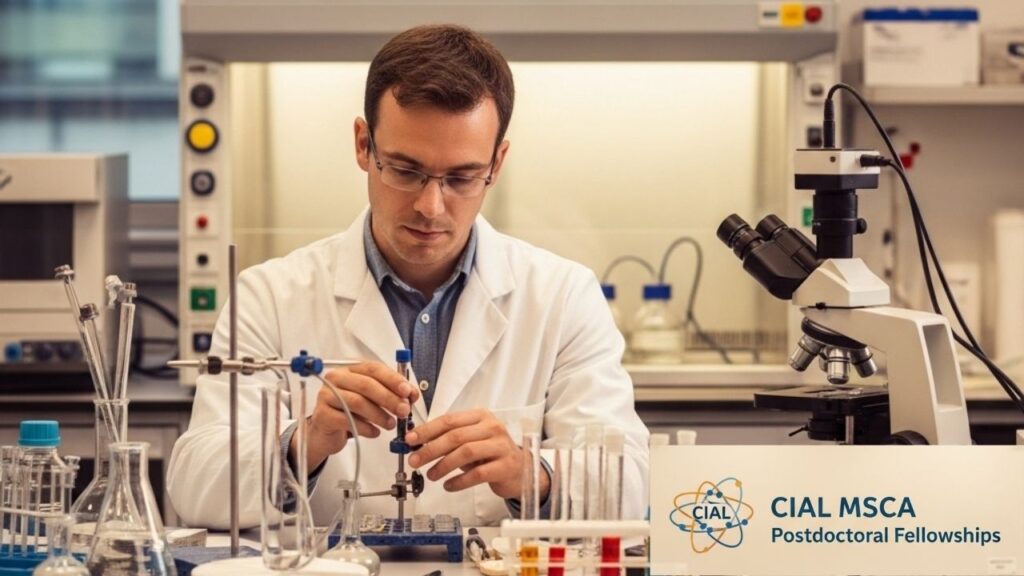
The MSCA Postdoctoral Fellowships are a cornerstone of the European Union’s Horizon Europe programme, designed to boost the creative and innovative potential of PhD holders. With a substantial budget of €404.3 million for the 2025 call, this initiative aims to fund approximately 1,650 projects across all scientific fields. This article will provide you with comprehensive, actionable, and encouraging information to help you understand and successfully navigate the CIAL MSCA Postdoctoral Fellowships application process.
What Are CIAL MSCA Postdoctoral Fellowships?
The Marie Skłodowska-Curie Actions (MSCA) are the European Union’s flagship program for doctoral education and postdoctoral training, fostering excellence in research and innovation. The Postdoctoral Fellowships (PF) specifically target researchers holding a PhD who wish to acquire new skills through advanced training, international, interdisciplinary, and inter-sectoral mobility, and implement original and personalised research projects. These fellowships are renowned for their focus on “i3 mobility”: international, interdisciplinary, and inter-sectoral movement, which broadens your scientific horizons and career prospects.
There are two main types of MSCA Postdoctoral Fellowships:
- European Postdoctoral Fellowships: Open to researchers of any nationality, these fellowships are for those who wish to engage in Research & Innovation (R&I) projects by either coming to Europe (EU Member States or Horizon Europe Associated Countries) or moving within Europe. The standard duration is between 12 and 24 months.
- Global Postdoctoral Fellowships: These are specifically for European nationals or long-term residents who wish to engage in R&I projects with organisations outside EU Member States and Horizon Europe Associated Countries. These fellowships involve an outgoing phase of a minimum of 12 and a maximum of 24 months in a non-associated Third Country, followed by a mandatory 12-month return phase to a host organisation in an EU Member State or a Horizon Europe Associated Country.
The Significance of MSCA Postdoctoral Fellowships
The MSCA Postdoctoral Fellowships are far more than just a source of funding. They are a catalyst for career transformation, providing a unique platform for researchers to:
- Elevate Research Excellence: Engage in original, personalised research projects that push the boundaries of knowledge. The evaluation places a strong emphasis on “Excellence” (50% weighting), focusing on your project’s objectives, its contribution beyond the state of the art, and your chosen methodology.
- Enhance Skills and Employability: Acquire new, advanced research skills and a suite of transferable skills highly valued in both academic and non-academic sectors. This includes training on open science, gender dimension in research, ethics, and research data management. The fellowship significantly boosts your long-term career prospects and employability.
- Foster International Collaboration: Experience true international mobility by working in different countries and research environments. This exposure builds your global network and broadens your perspective.
- Promote Interdisciplinary and Inter-sectoral Mobility: The program encourages researchers to cross disciplinary boundaries and even spend time in non-academic organisations (e.g., companies, NGOs, museums). This enriches your research and development skills, bridging the gap between academia and industry.
- Receive Comprehensive Support: Beyond the generous living, travel, and family allowances, the fellowship also contributes to your research, training, and networking costs, as well as the management and indirect costs of the project. Many host institutions offer additional guidance on practicalities like visas, accommodation, and taxation.

Eligibility for MSCA Postdoctoral Fellowships 2025
Before embarking on your application journey, it’s vital to ensure you meet the core eligibility criteria for the CIAL MSCA Postdoctoral Fellowships 2025. These are strictly enforced:
- Doctoral Degree: You must hold a PhD degree by the call deadline (September 10, 2025). Applicants who have successfully defended their doctoral thesis but have not yet formally been awarded the degree are also considered eligible.
- Research Experience: You must have a maximum of eight years of experience in research from the date of the award of your PhD degree. Crucially, years of experience outside research and career breaks (e.g., due to parental leave, compulsory national service) do not count towards this maximum. Time spent doing research in a non-associated Third Country (for EU Member State or Associated Country nationals/long-term residents wishing to reintegrate into Europe) can also be deducted. There’s a self-assessment tool available on the EU Funding & Tenders Portal to help you calculate your eligibility.
- Mobility Rule: This is a fundamental aspect of the MSCA. For European Postdoctoral Fellowships, you must not have resided or carried out your main activity (work, studies, etc.) in the country of the beneficiary (host institution) for more than 12 months in the 36 months immediately before the call deadline. For Global Postdoctoral Fellowships, this rule applies to the host organisation for the outgoing phase. Short stays like holidays are not counted.
- Nationality: For European Postdoctoral Fellowships, researchers of any nationality can apply. For Global Postdoctoral Fellowships, applicants must be European nationals or long-term residents of an EU Member State or Horizon Europe Associated Country.
Navigating the Application Process: Your Roadmap to Success
The application for CIAL MSCA Postdoctoral Fellowships 2025 is a rigorous but rewarding process. In my experience advising students, one common hurdle is underestimating the time and effort required for a compelling proposal. Begin early! The call opened on May 8, 2025, and the deadline to submit proposals is September 10, 2025, at 17:00 (CET).
Here’s a step-by-step guide to help you:
1. Finding Your Perfect Host Institution and Supervisor
This is perhaps the most critical initial step. Your application is made jointly with a host institution and a supervisor. The quality and alignment of your proposed supervisor and host environment with your research project are paramount.
- Utilize Euraxess: The Euraxess portal is an excellent resource for finding hosting offers (expressions of interest) from research institutions looking to support MSCA PF applications. These offers often specify research fields and even potential supervisors.
- Network Proactively: Reach out to academics whose work aligns with yours. Many successful applicants establish contact with potential supervisors months in advance to discuss project ideas.
- Consider “Widening Countries”: If your host institution is in a “widening country” (a country with lower participation rates in Horizon Europe), your proposal might also be considered for an ERA Fellowship, offering a “second chance” for funding if you narrowly miss the MSCA PF cut-off score.
2. Crafting a Winning Proposal
Your proposal is the heart of your application. It’s typically limited to 10 pages for the core scientific content (Part B1) and up to 5 pages for your CV (Part B2). It will be evaluated on three main criteria:
- Excellence (50% weighting):
- What are your project objectives?
- How does your project go beyond the current state of the art?
- What is your methodology, and how will it deliver your objectives?
- Crucially, this section also assesses the quality of the researcher’s professional experience, competences, and skills, as well as the quality of the host.
- Impact (30% weighting):
- What skills do you want to develop during the fellowship?
- Which target groups (scientific community, end-users, public) would benefit from your project, and what kinds of impact do you hope to make (scientific, societal, economic)?
- How will this fellowship enhance your career prospects and employability? Remember to detail your dissemination and communication plans.
- Quality and Efficiency of the Implementation (20% weighting):
- Is your work plan clear, realistic, and effective?
- Are the resources and infrastructure of the host institution adequate for your project?
- Have you adequately assessed and planned for potential risks?
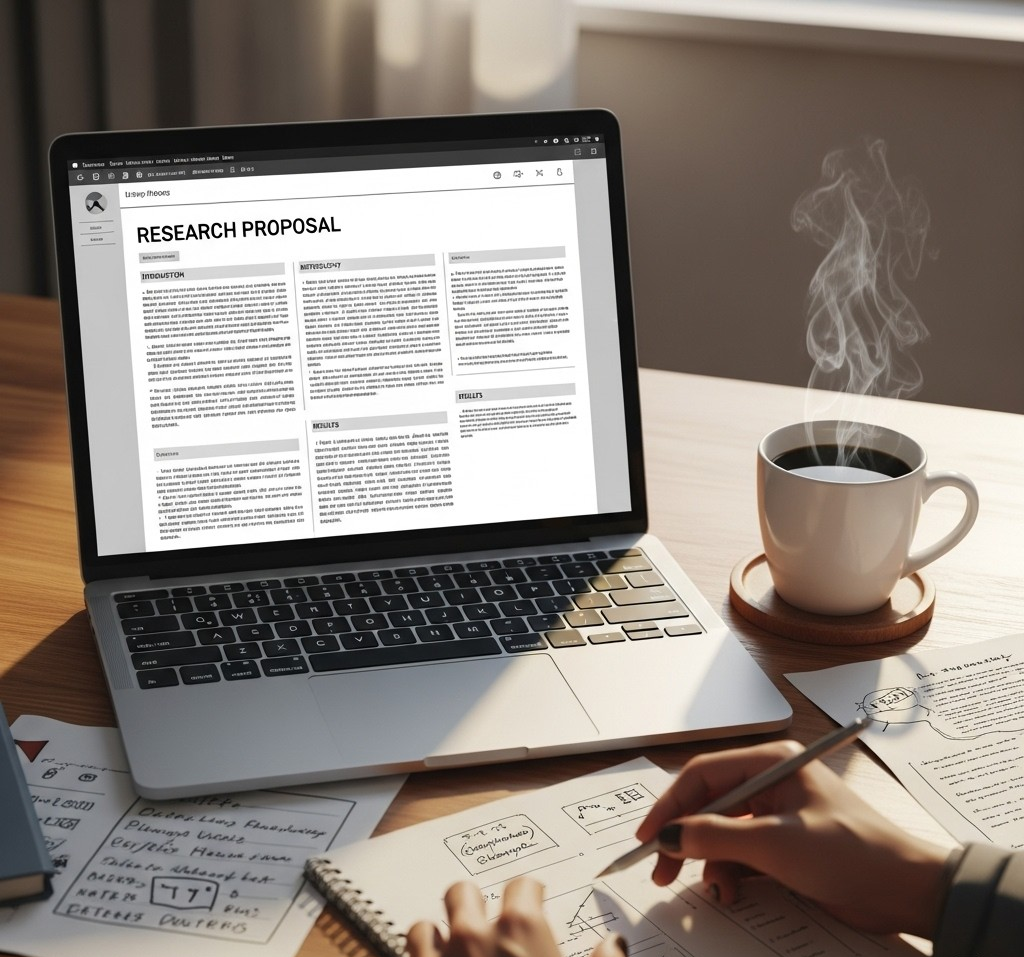
3. Understanding the Call Documents and Support Resources
The European Research Executive Agency (REA) and the MSCA National Contact Points (NCPs) provide a wealth of official documentation and support. I’ve seen many successful applicants focus on thoroughly reading these guides.
- Guide for Applicants: This is your bible, providing an overview of rules, financial aspects, and detailed instructions.
- MSCA Work Programme and Annexes: Essential for understanding the broader context and specific requirements.
- Proposal Templates: Use the official templates for Part B1 and B2.
- Horizon Online Manual: Provides guidance on how to use the Funding & Tenders Portal for submission.
- MSCA PF 2025 Handbook and Submission Guide: Recently published by the RADIANCE project, these handbooks offer practical advice on proposal development and common pitfalls.
- National Contact Points (NCPs): Find your country’s NCP through the MSCA website. They are an invaluable resource for personalized advice and support.
4. Submission Best Practices
- Register on the Funding & Tenders Portal: You will need an EU Login account and your host organisation will need a PIC number.
- Submit Early: Do not wait until the last minute! The system can experience heavy traffic close to the deadline. You can submit, reopen, edit, and resubmit your proposal as many times as needed before the final deadline.
Benefits Beyond Funding: A Launchpad for Your Career
The benefits of securing a CIAL MSCA Postdoctoral Fellowship extend far beyond the financial support. This fellowship is a testament to your research excellence and a significant milestone in your academic journey.
Consider the opportunities:
- Networking: You become part of a vast network of highly talented researchers and leading institutions across Europe and beyond. The Marie Curie Alumni Association is an active community that fosters continued collaboration and support.
- Visibility and Prestige: The MSCA is globally recognised, enhancing your profile and opening doors to future career opportunities in academia, industry, or policymaking.
- Personal Growth: The emphasis on mobility, interdisciplinarity, and transferable skills development will transform you into a more versatile, innovative, and adaptable researcher.
Stay Connected: Resources and Community
Engage with the MSCA community and leverage official channels for the latest updates and inspiration.
Your Guide to Securing the Dunn Fellowship 2026 at ACLU DC: Insider Tips for ACLU DC Applicants
The UK Smart Data Research Fellowships 2025 Await Your Vision
FAQ
Q1: What is the deadline for the CIAL MSCA Postdoctoral Fellowships 2025?
The deadline for submitting proposals for the MSCA Postdoctoral Fellowships 2025 is September 10, 2025, at 17:00 (CET).
Q2: What are the main eligibility criteria for the MSCA Postdoctoral Fellowships?
You must hold a PhD degree by the call deadline, have a maximum of eight years of research experience since your PhD (with exceptions for career breaks), and comply with the mobility rule (not having resided in the host country for more than 12 months in the past 36 months).
Q3: What is the difference between European and Global Postdoctoral Fellowships?
European Fellowships are for researchers moving within Europe or coming to Europe from any country. Global Fellowships are for European nationals or long-term residents who wish to conduct research in a non-associated Third Country for 1-2 years, followed by a mandatory 1-year return phase to Europe.
Q4: How important is the choice of host institution and supervisor?
Extremely important. Your application is a joint effort with your host institution and supervisor. Their expertise, the quality of their research environment, and their commitment to your project are critical evaluation factors.
Q5: What kind of support is provided by the MSCA Postdoctoral Fellowship?
The fellowship provides a living allowance, mobility allowance, and potentially a family allowance. Additionally, it covers research, training, networking costs, and contributes to the host institution’s management and indirect cost.


